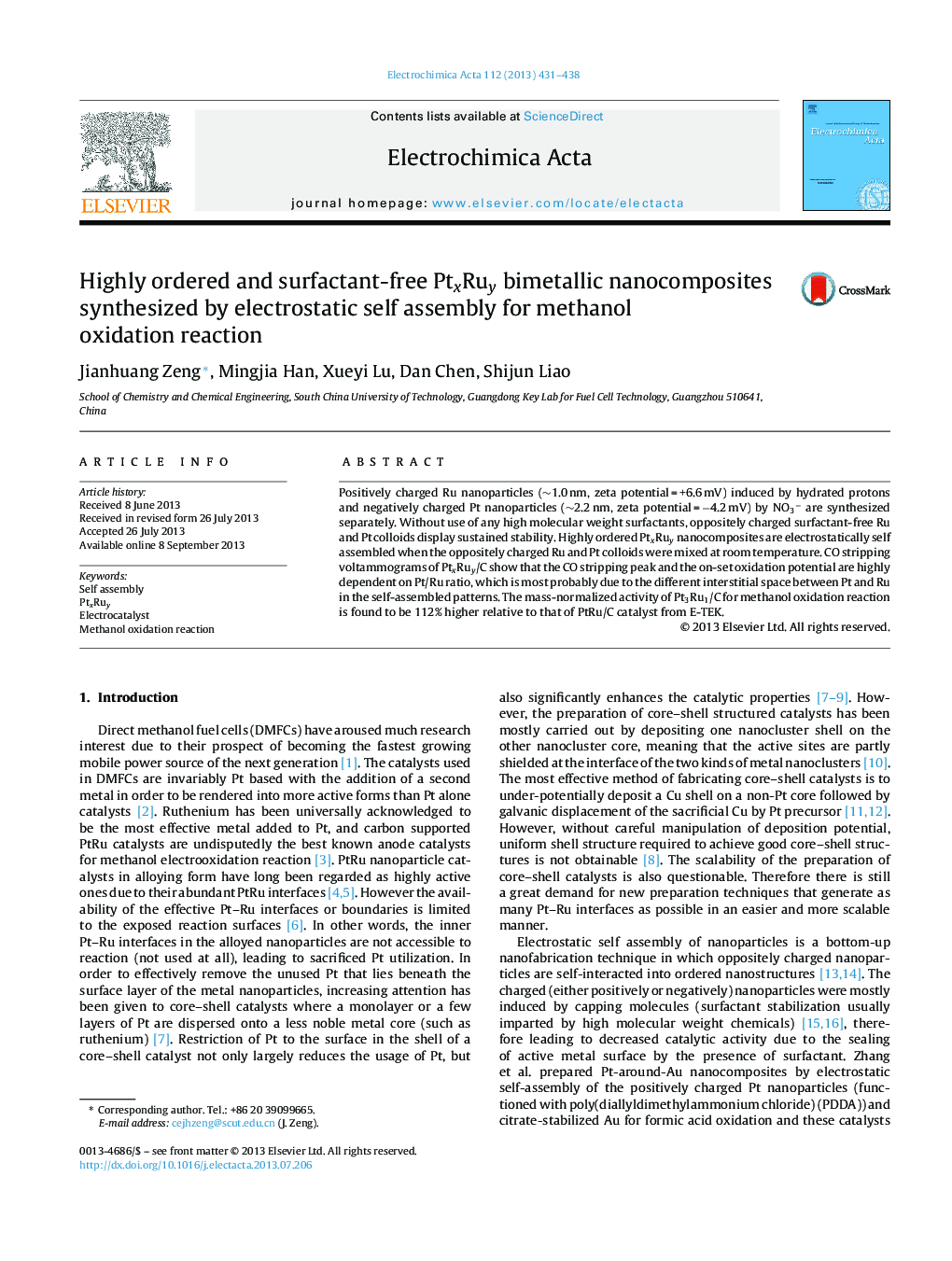| Article ID | Journal | Published Year | Pages | File Type |
|---|---|---|---|---|
| 6614970 | Electrochimica Acta | 2013 | 8 Pages |
Abstract
Positively charged Ru nanoparticles (â¼1.0 nm, zeta potential = +6.6 mV) induced by hydrated protons and negatively charged Pt nanoparticles (â¼2.2 nm, zeta potential = â4.2 mV) by NO3â are synthesized separately. Without use of any high molecular weight surfactants, oppositely charged surfactant-free Ru and Pt colloids display sustained stability. Highly ordered PtxRuy nanocomposites are electrostatically self assembled when the oppositely charged Ru and Pt colloids were mixed at room temperature. CO stripping voltammograms of PtxRuy/C show that the CO stripping peak and the on-set oxidation potential are highly dependent on Pt/Ru ratio, which is most probably due to the different interstitial space between Pt and Ru in the self-assembled patterns. The mass-normalized activity of Pt3Ru1/C for methanol oxidation reaction is found to be 112% higher relative to that of PtRu/C catalyst from E-TEK.
Related Topics
Physical Sciences and Engineering
Chemical Engineering
Chemical Engineering (General)
Authors
Jianhuang Zeng, Mingjia Han, Xueyi Lu, Dan Chen, Shijun Liao,
